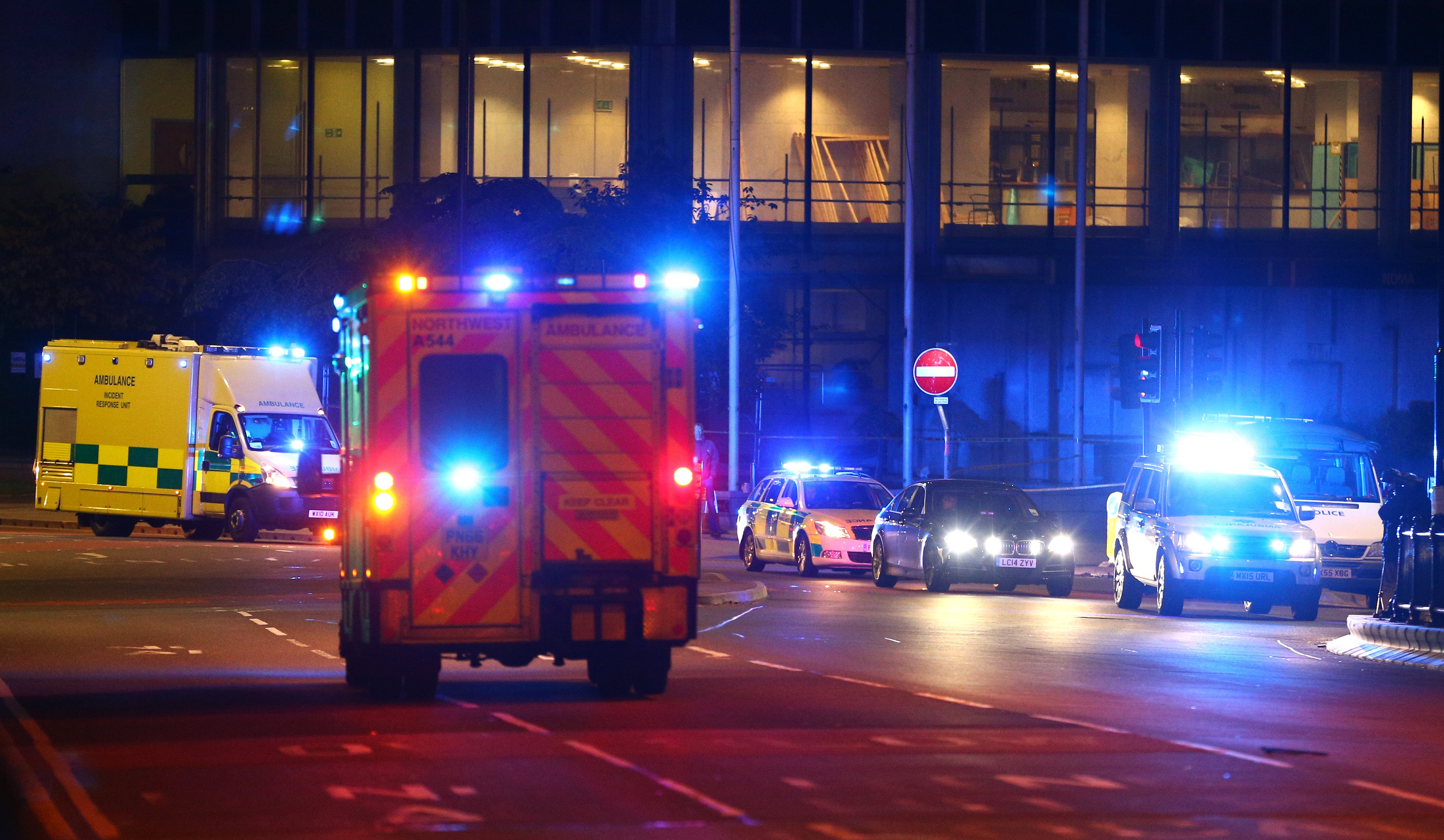Family praise ‘hero’ who tried to save Manchester Arena bombing victim
Ronald Blake had not recieved any first aid training, but held a makeshift tourniquet on the victim’s leg for almost an hour until paramedics arrived

Your support helps us to tell the story
From reproductive rights to climate change to Big Tech, The Independent is on the ground when the story is developing. Whether it's investigating the financials of Elon Musk's pro-Trump PAC or producing our latest documentary, 'The A Word', which shines a light on the American women fighting for reproductive rights, we know how important it is to parse out the facts from the messaging.
At such a critical moment in US history, we need reporters on the ground. Your donation allows us to keep sending journalists to speak to both sides of the story.
The Independent is trusted by Americans across the entire political spectrum. And unlike many other quality news outlets, we choose not to lock Americans out of our reporting and analysis with paywalls. We believe quality journalism should be available to everyone, paid for by those who can afford it.
Your support makes all the difference.The family of a care worker who was killed in the Manchester Arena bombing in 2017, have praised the “heroic” efforts of a member of the public who tried to save him, an inquiry into the bombing has heard.
John Atkinson, 28, from Bury, Greater Manchester, was just six metres away from bomber Salman Abedi he set off a bomb in the the City Room foyer of the Manchester Arena, at an Ariana Grande concert in 2017.
Mr Atkinson was a big fan of the singer and was watching the performance on 22 May 2017 with his friend, Gemma O’Donnell, who happened to be the sister of his partner, Michael.
The public inquiry which was held in Manchester, heard that the two of them were separated during the blast.
Meanwhile, former pizza shop boss Ronald Blake was knocked to the ground by the explosion while waiting to pick up his daughter from the concert with his wife Lesley.
When the smoke cleared and he got to his feet he noticed a man - Mr Atkinson - covered in blood on the floor. Mr Atkinson was apparently conscious and talking following the blast, although he had suffered from injuries to his leg and abdomen.
Mr Blake called the emergency services and passed on the message that Mr Atkinson was “really injured”, that blood was “pumping” from his leg, and that he thought up to 40 other people had been injured.
Mr Blake had received no first aid training but attempted to stem the flow of blood from Mr Atkinson’s leg, using his wife Lesley’s belt.
This was after he was told by the 999 call holder to place a tourniquet on Mr Atkinson’s leg and apply pressure to it.
Mr Blake held the tourniquet on Mr Atkinson’s leg for almost one hour, whilst waiting for paramedic to attend to the injured care worker.
Mr Blake told the inquiry: “I have never had any first aid training and my natural instinct at the Arena was to try and stop the blood and keep him conscious. When I left him with the paramedics I thought he was going to survive.”
He went on to explain Mr Atkinson was conscious and talking while they were together. He added he had been “shocked” to discover the next day, when he was being treated in hospital for injuries of his own, that Mr Atkinson had died.
John Cooper QC, representing Mr Atkinson’s family, said to Mr Blake: “I profoundly thank you on their behalf for the hard work, dedication and I can think of no better word than heroics that you performed on that night trying to save John. Their heartfelt thanks to you for that.”
He went on to ask Mr Blake: “During the time you were dealing with John it was obvious, wasn’t it, that he was very, very severely injured?”
The witness replied: “Yes.”
Mr Cooper went on: “And you didn’t need, for instance, a medical qualification to see that, did you, it was obvious from the amount of blood he was losing?”
Mr Blake said: “Yes.”
The inquiry has heard from experts that timely medical intervention could have made a difference to whether or not Mr Atkinson survived. They also heard that the issue will be “considered with care”.
Just three paramedics from North West Ambulance Service (NWAS) entered the City Room on the night of the bombing, with two of them arriving only a few minutes before Mr Atkinson was evacuated.
Available footage showed that Mr Atkinson was not triaged, assessed or assisted by NWAS personnel for the 47 minutes he lay in the City Room, the inquiry heard.
Additional reporting by PA
Join our commenting forum
Join thought-provoking conversations, follow other Independent readers and see their replies
Comments